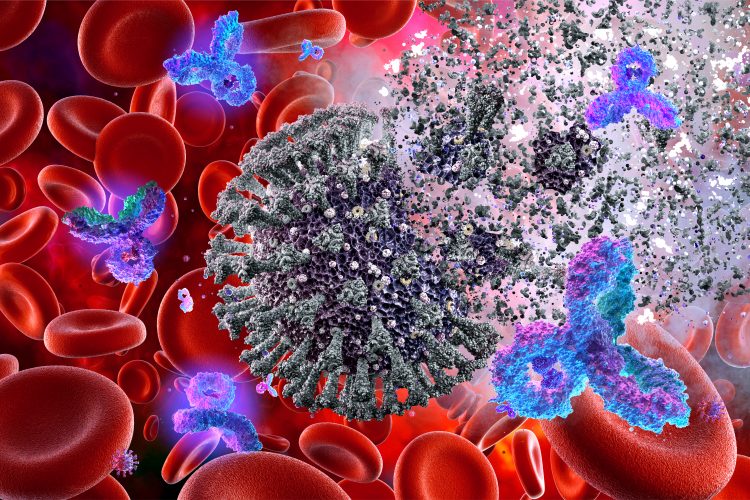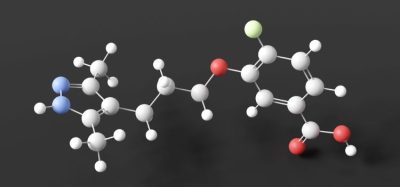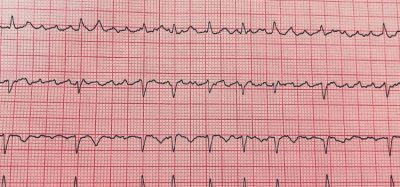FDA approves emergency use of Lilly’s COVID-19 antibody combination
Posted: 10 February 2021 | Hannah Balfour (European Pharmaceutical Review) | No comments yet
The Emergency Use Authorization (EUA) for bamlanivimab and etesevimab was based on a trial where the antibodies lowered risk of hospitalisation and death in COVID-19 patients.


The US Food and Drug Administration (FDA) has issued an Emergency Use Authorization (EUA) for bamlanivimab and etesevimab administered together for the treatment of mild to moderate COVID-19 in adults and paediatric patients (12 years of age or older weighing at least 40) who are at high risk for progressing to severe COVID-19. The indication includes treatment for those who are 65 years of age or older or who have certain chronic medical conditions.
In a clinical trial of patients with COVID-19 at high risk for disease progression, a single intravenous infusion of bamlanivimab and etesevimab administered together significantly reduced COVID-19-related hospitalisation and death during 29 days of follow-up compared to placebo. The safety and effectiveness of this investigational therapy for use in the treatment of COVID-19 continue to be evaluated.
Bamlanivimab and etesevimab are not authorised for patients who are hospitalised with COVID-19 or require oxygen therapy due to the disease, as this has not been studied and it is thought the antibodies may be associated with worse clinical outcomes when administered to hospitalised patients with COVID-19 requiring high flow oxygen or mechanical ventilation.
“Today’s action, which provides another treatment for COVID-19, reflects the FDA’s strong commitment to working with sponsors to expand potential treatment options health care providers can use to fight this pandemic,” said Dr Patrizia Cavazzoni, acting director of the FDA’s Center for Drug Evaluation and Research. “The data supporting this emergency authorisation add to emerging evidence that points to the clinical utility of neutralising antibodies for the treatment of COVID-19 in certain patients. As part of our Coronavirus Treatment Acceleration Program, the FDA uses every resource at our disposal to make treatments such as these monoclonal antibodies available while continuing to study their safety and effectiveness.”
Bamlanivimab and etesevimab are specifically directed against the Spike (S) protein of SARS-CoV-2, designed to block the virus’ attachment and entry into human cells. Bamlanivimab and etesevimab bind to different but overlapping sites on the S protein of the virus.
The EUA was issued because, based on the FDA’s review of the totality of the scientific evidence available, the agency has determined that it is reasonable to believe that bamlanivimab and etesevimab administered together may be effective in treating certain patients with mild or moderate COVID-19. When used to treat COVID-19 for the authorised population, the known and potential benefits of these antibodies outweigh the known and potential risks. There are no adequate, approved and available alternative treatments to bamlanivimab and etesevimab administered together for the authorised population.
The data is from a randomised, double-blind, placebo-controlled clinical trial in 1,035 non-hospitalised adults with mild to moderate COVID-19 symptoms who were at high risk for progressing to severe COVID-19. Of these patients, 518 received a single infusion of bamlanivimab 2,800mg and etesevimab 2,800mg together; and 517 received placebo. The primary endpoint was COVID-19 related hospitalisations or death by any cause during 29 days of follow-up. Hospitalisation or death occurred in 36 patients who received placebo compared to 11 patients treated with bamlanivimab and etesevimab administered together, a 70 percent reduction. All 10 deaths deaths occurred in the placebo group.
The authorised dosage of 700mg bamlanivimab and 1400mg etesevimab administered together is based on analyses of available preclinical, clinical and virologic data, as well as pharmacokinetic and pharmacodynamic modelling. The authorised dosage is expected to have a similar clinical and virologic effect to 2,800mg of each.
The EUA was issued to Eli Lilly and Co.
Related topics
Antibodies, Clinical Trials, Drug Development, Drug Safety, Regulation & Legislation, Therapeutics
Related organisations
Eli Lilly and Company, US Food and Drug Administration (FDA)









